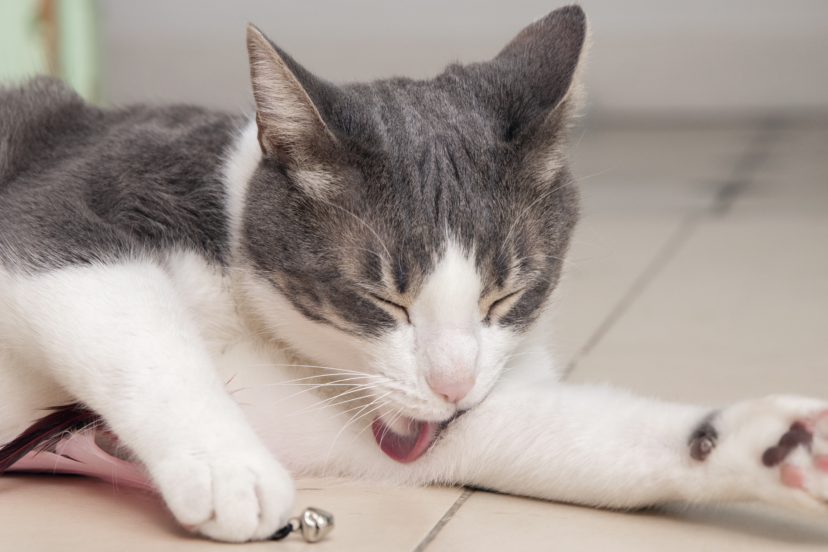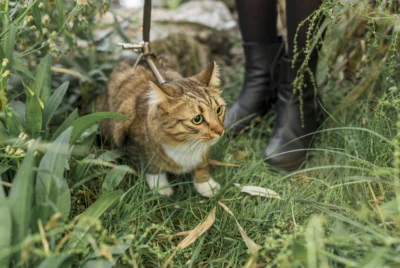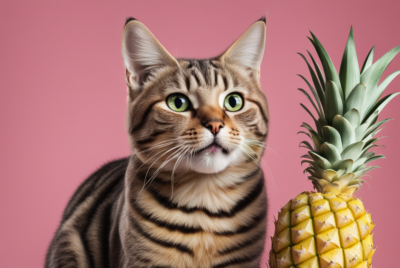Can Cats Have Autism?
Cats often do things that make their owners wonder. They like to do their own thing instead of being around people a lot. This has folks asking themselves, “What is my cat feeling? What does she want?”. Owners start thinking maybe their cat could have autism just like some folks do.
While science learns more about animals all the time, some cats act in ways people still don’t fully understand. A big question many people ask is – can cats have autism too? We don’t know for sure yet but some cat behaviors do look a bit like autism in humans.
Let’s take a careful look at this interesting question. Autism means kinds of issues that change how people socialize and act.
Right now, there aren’t any tools or rules to say for certain if a cat’s behavior could relate to problems similar to autism. Though some kitties might repeat actions, feel things too strongly, or struggle with changes – things reminding us a tiny bit of autism signs in folks.
Understanding Feline Behavior
Feline Behavior vs. Autism Spectrum Disorder (ASD)
Cats naturally like being by themselves instead of hanging around lots of others like folks do. Cats act like loners going after food alone instead of working with others.
But autism means types of issues that mess with how people connect with others and act. So when looking at cat actions for things like autism, you have to know cats and people are built differently.
Meaning any observed behaviors in humans which suggest some neurodevelopmental disorder may not at all be the same for what can be considered in an autistic cat.
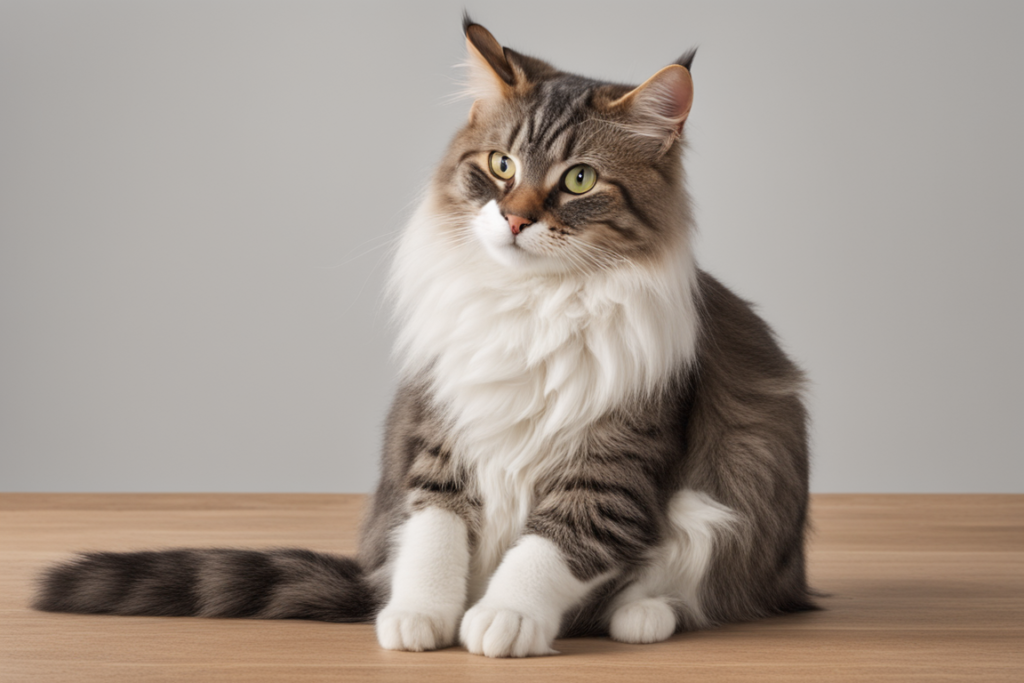
Importance of Understanding Cat Behavior
It’s really important to know what kinds of things cats usually do and how they develop before saying a cat is doing something weird. Stuff like if they like being pet, how much they move around, cleaning themselves, and reacting to loud noises or touch will differ between each cat and type of cat. To look at it right, you have to learn about normal cat stuff, not just what your own cat is like.
Environmental Factors Affecting Cat Behavior
Where a cat lives, who they interact with, and things they’re around change how they feel comfortable and stressed. Too much noise, smells, or things changing their schedule too much can bother some cats more than others.
Making sure a cat can get away from over-exciting things or cats/people that bother them is good for their happiness. Knowing what a pet likes and doesn’t like helps make things good for them and you together.
Recognizing Unusual Behavior in Cats
Acting abnormal could mean meowing too much, scratching/biting for no reason, being too scared/angry, or not using the litterbox like they should. But some pickiness, keeping to themselves, or odd little things now and then are just part of being a cat. Knowing really strange stuff that deserves a vet check means seeing bigger changes in personality short or long-term, not just quirks.
Also read: Cat Rolling 101: Why Does My Cat Roll Around on the Floor?
Similarities Between Cat Behavior and ASD
Repetitive Behaviors in Cats
Some cats may repeat certain actions like cleaning themselves over and over, chasing their tail, or always doing things in exactly the same way. This could show issues controlling impulses or changes like seen with humans with autism. But, cats clean a lot normally so this would need watching carefully.
Just like humans, autism in cats cannot be easily diagnosed by exhibiting repetitive behaviors. Some other symptoms must also be present and clinically observed.
Sensitivity to Stimuli in Cats
Cats’ reactions to various noises, smells, tastes or textures might give clues. Seeming extra stressed by loud sounds, strong scents or certain surfaces could suggest issues processing sensations like humans on the spectrum. However, fears are also natural for some shy cats.
Social Interaction in Cats
Their play, eye contact and tolerance of touch from strangers may hint at autism-like challenges. Avoiding looking others in the eye, reacting badly to holding, or just preferring solo play may match autism.
But cats are not as people-oriented naturally compared to humans and dogs. Sometimes, they simply exhibit behaviors that are normal to them, and not necessarily suggestive of ASD even though it affects social interaction.
Underlying Medical Conditions vs. Behavioral Patterns
Medical causes like thyroid or infection might cause similar signs as well. It’s important to thoroughly check a cat’s health with their vet and look at behaviors over time compared to other cats before conclusions are drawn about ASD. Treatable conditions need ruling out first.
Diagnosing Autism in Cats
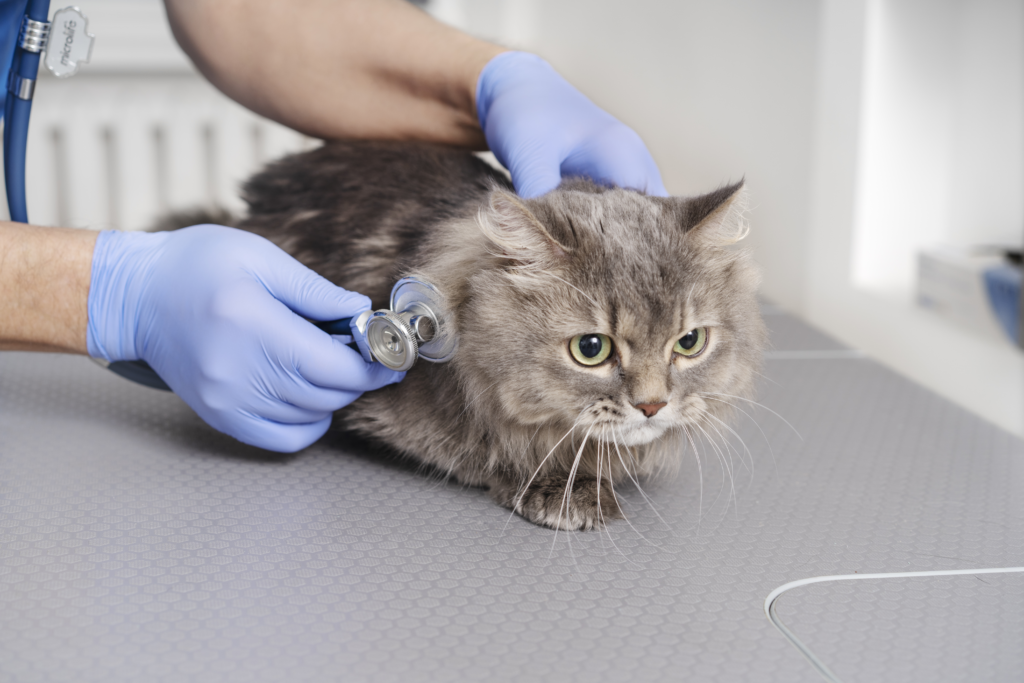
No Standardized Diagnostic Criteria for Autism in Cats
Right now, there aren’t any set tools or rules to diagnose autism in cats for sure. Since all cats act differently based on breed and as an individual, figuring out autism would be really tough without a lot more research.
Importance of Consulting a Veterinarian or Animal Behaviorist
Talking to a vet is very important to check on a cat’s overall health and rule out any medical issues affecting its behavior before thinking about autism. An animal expert who studies how critters act can carefully watch a cat over time, compare it to other cats, and get tips from the owner on its development.
Observing Behaviors and Consulting a Professional
While some cats may show signs like autism symptoms in folks, more proof is needed before scientists can truly say autism happens in felines. Their behaviors deserve being looked at as just cat behaviors, not people problems that we don’t fully understand with cats. Meeting with pros can help the most.
Can Other Animals Have Autism?
Ongoing Research on Autism in Animals
Scientists are still learning about brain disorders being found in other kinds of critters too. Lots of studies aim to see if autism and similar issues crop up in creatures like dogs, birds and more. But it’s difficult without set ways to spot like we have started for humans. More work helps compare animal and human minds.
Animals Exhibiting Similar Behaviors
Certain breeds of dogs may act in ways resembling autism signs in folks. Parrots are known for repeating actions and struggling to roll with changes like folks on the spectrum. Still, diagnosing critters is challenging without clear rules yet. Their habits need looking at just as their own type first.
Living With a Cat That Exhibits Certain Behaviors
Providing Environmental Enrichment
Making sure a cat has stimulating things to play with and places to chill alone from noise can help a lot. Things like scratching posts, interactive toys, multiple hiding spots help cats feel good.
Providing different types of enrichment throughout the day is ideal. Rotating between toys, scratching pads, climbing surfaces, and food puzzles challenges their natural behaviors and prevents boredom.
Understanding Sensory Processing in Cats
It’s important to know if a cat loves affection or needs space. Some cats are fine with loud sounds and touch while others prefer calmness. Respecting individual comfort zones helps the relationship.
Paying attention to how a cat reacts in different environments can provide clues. Their body language will show if they seem relaxed or stressed. Establishing safe areas away from potential overstimulation is beneficial.
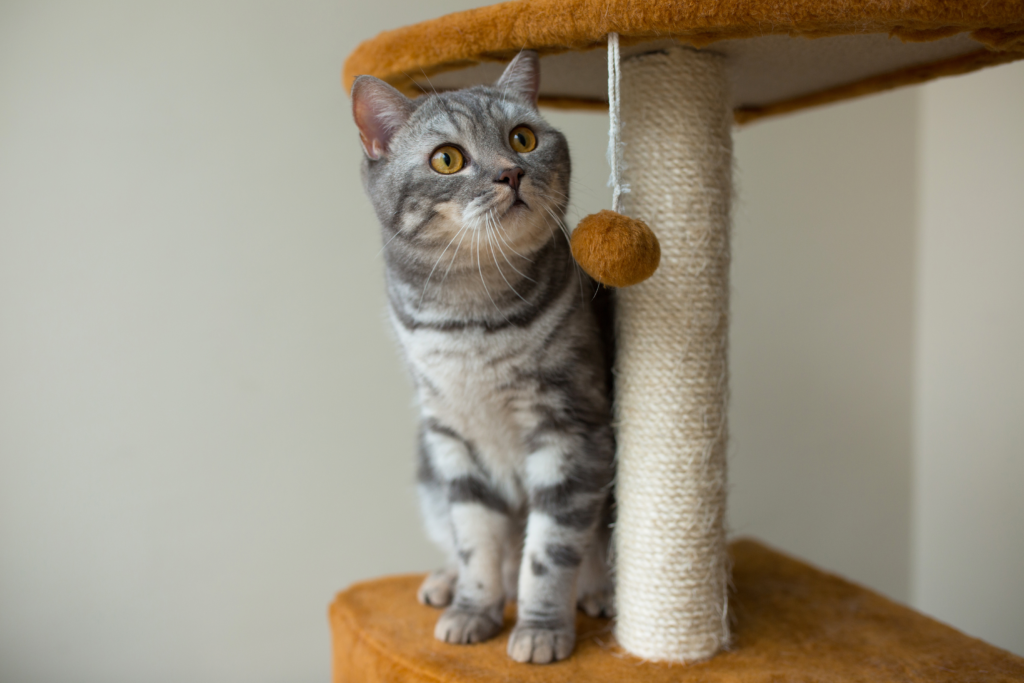
Positive Reinforcement and Behavior Modification Techniques
Using reward training teaches good habits and builds trust with your furry buddy. Patience and kind rules can encourage changes when needed. Offering praise and treats consistently when they exhibit desired behaviors like using the scratching post or responding to their name reinforces positive actions. Implementing techniques under vet or trainer guidance gives the best chance of success.
Living With a Cat with Atypical Behaviors
Having routines, a calm environment, minimizing stress, and meeting a cat where it’s at helps both of you live happily together. As with any pet, adjusting the home and interactions based on their needs requires empathy, care and dedication. With understanding comes the opportunity to enrich both lives in the relationship.
Consulting an Animal Behaviorist for Unusual Behaviors
If behaviorists observe issues after a cat’s full health workup, they may spot adjustments enriching your cat’s days and your understanding of its needs. Getting expert guidance in these cases supports cat and owner welfare.
A behavior modification plan customized to the specific challenges ensures the best outcome, safety and quality of life. Consistent follow through is important for progress.
Happy and Healthy Lives for Cats with Certain Behavioral Traits
Scientists still have lots more to learn about if cats can have things like autism. But what really matters is not putting labels on critters. The most important thing is making sure cats feel good both emotionally and physically.
Making sure a cat’s home and daily routine fits its unique personality and needs is key. This lets their natural cat-ness shine through without too much stress. When stuff seems off, vet check ups and talking to animal experts help figure out any health problems vs normal cat quirks.
With kind understanding of each cat being different and patience that doesn’t run out, homes can keep cats happy and owners happy too. Even if things are tricky sometimes, staying hopeful and asking community animal pros for help means felines feel comfy being themselves. And that’s good for us people living with them too.
There’s not always super clear answers, but keeping open talks between pet and owner, plus listening to the experts when worried, and most importantly lots of love provides the best foundation. As we keep learning together, we gain understanding to empower all the awesome little furry souls that bring joy every single day.
Also read: Why Do Cats Pee on My Clothes?

